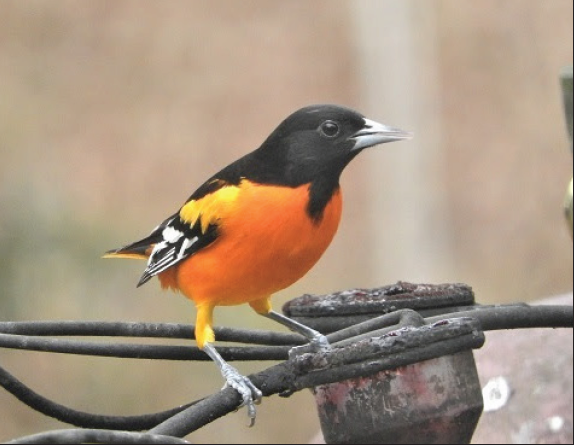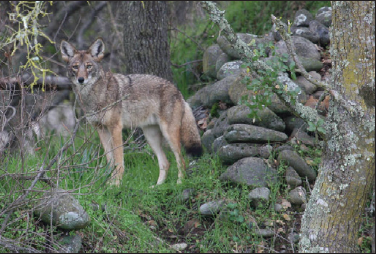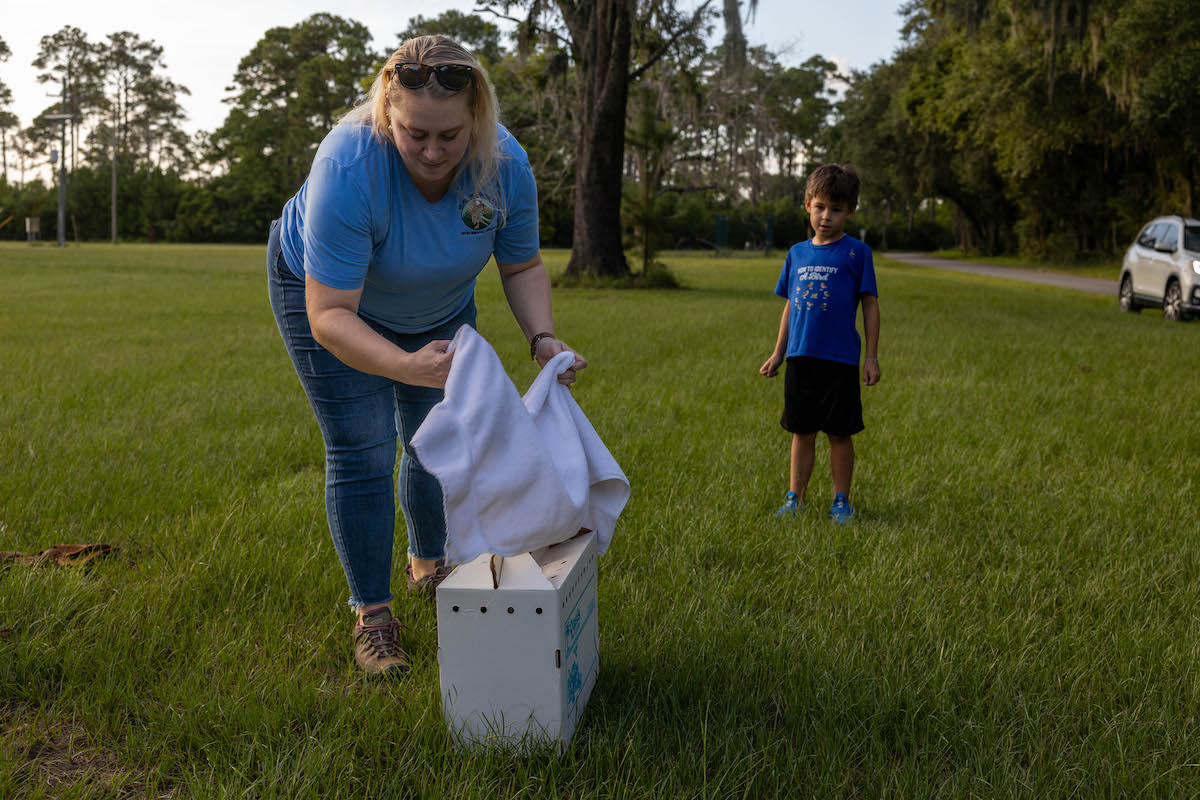S.C. Department of Natural Resources
The S.C. Department of Natural Resources (SCDNR) will conduct its annual Baltimore Oriole Winter Survey Feb. 18-21 in conjunction with the Great Backyard Bird Count. The state natural resources agency is interested in the status and distribution of these colorful songbirds that are wintering in the Palmetto State.
If you currently have Baltimore orioles coming to your feeders or have had them in the past years, SCDNR encourages your participation. Survey participants count and record the largest number of Baltimore orioles they can see at one time, on one, two, three or all four days of the survey period. Even if you cannot participate during the survey period, SCDNR would still like to record your oriole numbers seen during the winter months of December through February.
Survey participants need to be able to correctly identify Baltimore orioles from other bird species. To participate, you can access the survey form and materials from https://bit.ly/34WN74W. The survey form and materials are available through your web browser or through the Survey 123 app (free download through your device’s app store). C
ontact Lex Glover at GloverL@dnr.sc.gov if you have any questions about the oriole survey, or for more information on the Great Backyard Bird Count and counting all species of birds, visit http:// gbbc.birdcount.org/.
This will be the seventh annual survey, and South Carolina continues to report the largest number of wintering Baltimore orioles in the country. Usually, these birds would winter in southern Florida, the Caribbean, Central and South America. However, during the last several decades, they have been wintering along the East Coast in greater abundance.
Last year’s Great Backyard Bird Count results had sightings in 21 states, ranging along the East Coast from Massachusetts to Florida, across the Gulf Coast states to Texas and in California. Reports were even received from New Brunswick, Nova Scotia and Ontario. The bulk of the birds reported were from the East Coast, from Virginia to Florida.
In the 2021 survey, South Carolina’s Baltimore Oriole Winter Survey data combined with the Great Backyard Bird Count data had South Carolina with the largest numbers of orioles in the country. The Palmetto State had 182 reports, the highest number of reports in the country (28 percent of the total number of reports) and 859 orioles tallied, (42 percent of the total number of orioles reported in the country). This was South Carolina’s largest count to date.
South Carolina had 16 counties reporting orioles last year. The majority of them wintered along the coastal plain from Myrtle Beach to Hilton Head Island. The hot spot was the Charleston, Berkeley, and Dorchester counties area, where 72 percent of the state’s orioles were tallied last year. Good numbers continued to extend inland, and the Upstate continues to report a few orioles. A first for the survey, since it began in 2015, was a report from Oconee County.
Though SCDNR is not sure why these birds have begun overwintering in large numbers in the state, they are responding well to the popularity of backyard bird feeding. Orioles are best attracted to feeders where the homeowner is already feeding birds in general.
Orioles are attracted to the activity of other birds at feeders. If conditions are right for them, they are likely to frequent the feeders where they can find food, water, and shelter. They will eat a variety of foods and seeds, suet products, some seed mixes, nuts and fruit mixes, but their favorite food by far is grape jelly. Since these birds have become more common at the winter feeders, you can find an assortment of feeders that cater to them and their foods, especially at bird-feeding specialty stores.
The survey will enable scientists to learn the distribution and abundance of Baltimore orioles wintering in South Carolina. Information from the survey and the Great Backyard Bird Count can provide a “big picture” about what is happening to Baltimore oriole populations and other bird species. SCDNR appreciates the public’s support and efforts in helping collect the valuable information in this survey








